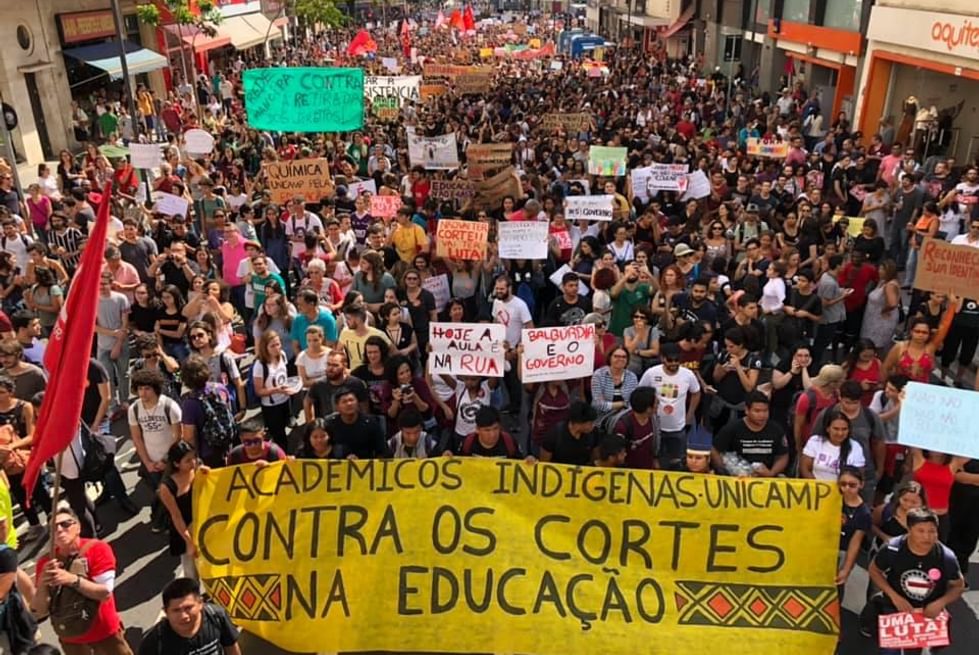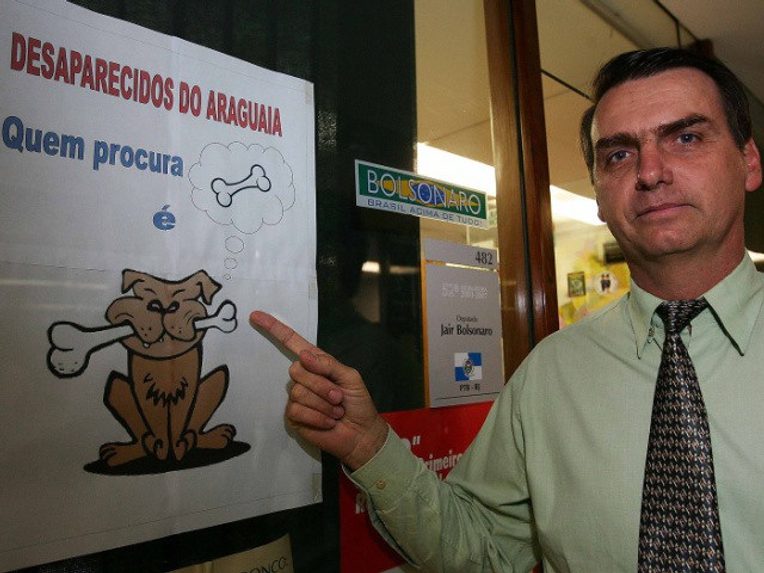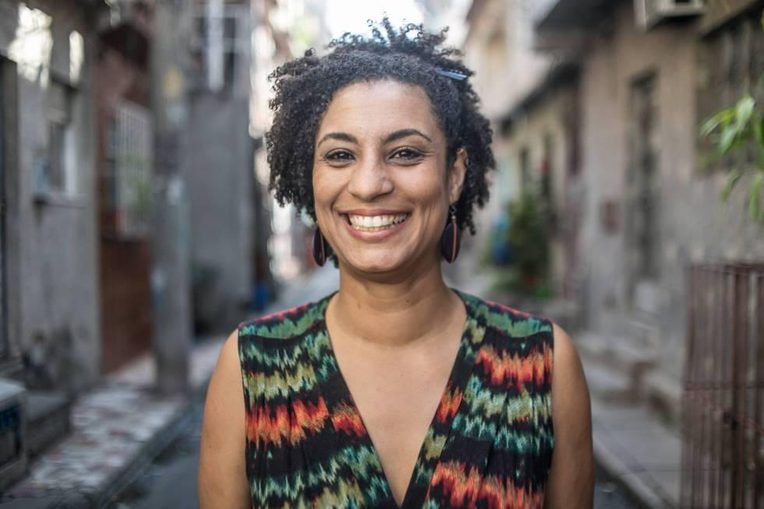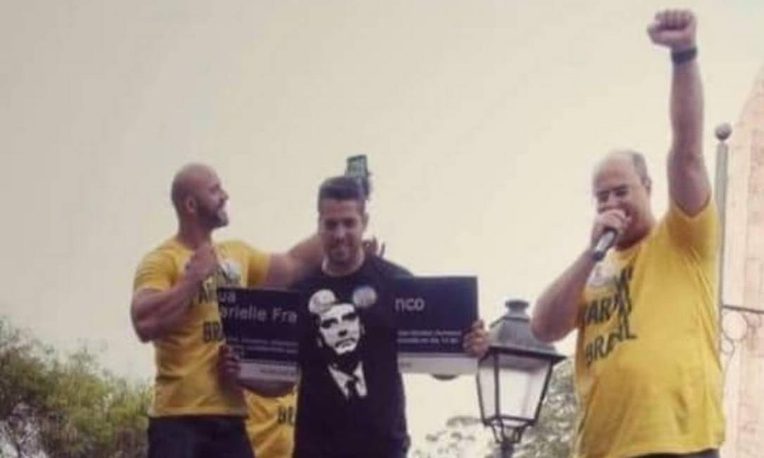On Silenced Memories: Dictatorship and Democracy in Question
From the Series: Bolsonaro and the Unmaking of Brazil
From the Series: Bolsonaro and the Unmaking of Brazil

Translated by Philip Sidney Pacheco Badiz
In 2009, a poster on the door of then-federal representative Jair Bolsonaro’s office inscribed the words: “Desaparecidos do Araguaia: Quem procura osso é cachorro” (The Disappeared of Araguaia: Only dogs search for bones). It protested the formation of a group to search for those who disappeared during the dictatorship (1964–1985). It pleased his electoral base, at the time restricted to the extreme right, particularly retired military personnel who participated in the repression in Brazil. With his marginal accomplishments, Bolsonaro stood out as the only congressman to publicly praise the authoritarian regime of the past.

Ten years later, the case was recalled in the story, “Quem caça osso é cientista” (Those who search for bones are scientists). The text celebrates the Perus Working Group (GTP), created in 2014 to search for missing persons among human remains buried in the 1970s in a mass grave in São Paulo. Supported by teams with international expertise, the GTP was a gamble on the development of a humanitarian forensic anthropology in Brazil. It is now threatened by Bolsonaro’s presidency. In April 2019, a decree was signed permitting the closure of civil society organizations that participate in the formulation and execution of public policies. The decision affected the National Mechanism for the Prevention and Combat of Torture, the organization responsible for monitoring the occurrence of torture in public security agencies. Although the GTP is supported by a court ruling, the federal government has not yet officially renewed its participation in the project and appears committed to disqualifying the group, as suggested by a dismissive comment by the Minister of Women, Family, and Human Rights that “pieces of dog bone” were among the São Paulo remains.
This statement is in keeping with a willingness to legitimize the current government through antagonism with the “left,” associating the latter with the “structure of corruption and privilege” that had been established over the last thirty years, especially by the governments of the Workers’ Party. This is the main reason given for why the two federal bodies dedicated to the recognition and reparation of victims of the dictatorship—the Amnesty Commission and the Special Commission on Political Deaths and Disappearances—are being subject to interruptions, redirections of research, threats of audits, personnel replacements, and accusations of ideological bias in recognition policies.
The rise of Bolsonaro initiates a decline in “Memory, Truth, and Justice” policies to redress violations committed by the dictatorship. These policies had been broadened over the last decade in an attempt to breach restrictions imposed by the Amnesty Law (1979) and to follow the prescriptions of Transitional Justice. The Inter-American Court of Human Rights’ 2010 condemnation of Brazil for not investigating and punishing cases of enforced disappearance spurred these efforts, which culminated in the National Truth Commission (2011–2015).
Although the possibility of criminal prosecution has been thwarted, the National Truth Commission has countered public silencing of the past by fostering opportunities for professional, political, and academic projects on the subject, along with activism around Memory, Truth, and Justice aimed at challenging the institutionalized memory of the dictatorship. It also sought to consolidate social recognition of a political militancy that was brutally repressed during the dictatorship, consisting mostly of urban middle classes. However, this has resulted in a narrow notion of “political violence” and a limited recognition of victims of repression, which excludes subaltern populations to the rights to reparation, homages, and identification research like that conducted by the GTP.
At the same time, the public debate has opened space for indigenous people, peasants, the black population, and the urban poor to claim their recognition as victims of dictatorship and to assert their inclusion in this account. They have disputed not only narratives concerning the authoritarian past, but also the meanings attributed to the present democratic form, questioning the validity of rights guaranteed by the 1988 Constitution. Black movements and collectives of family members of victims of police violence in the urban periphery repeatedly denounce that “the dictatorship for the poor never ended” given that torture, execution, and enforced disappearances are longstanding practices in their communities. Rising incarceration and death rates resulting from police intervention—which have increased significantly following Bolsonaro’s publicly advocated extermination policy—disproportionately affect young people, blacks, and the poor.1 For these broad sectors, this is why certain historical periods and transitional narratives lose their meaning.
Brazil is commonly characterized as a country “without memory.” We would argue, however, that the reasons for this presumed “social amnesia” are rooted in the abysmal social and racial inequalities that permeate socially recognized violence and memories.
We know that the imposition of terror often implies the inability to honor and to remember certain lives, deaths and experiences. Another case seems emblematic to us, one that occurred during the last electoral campaign: it involves Marielle Franco, a black lesbian councilwoman from the urban periphery, renowned for her human rights work. In the wake of her brutal, unresolved murder in March 2018, three candidates, later elected as state representatives and as the governor of Rio de Janeiro (two of them from Bolsonaro’s political party), defiantly destroyed a street sign that paid homage to Marielle Franco during a public rally.


The denial of the right to memory is related to the intent to exterminate the “other,” materially and symbolically. The struggle for memory has thus become central to collectives of family members of young people killed by the police, expressed in the motto “Nossos Mortos Tem Voz” (Our Dead Can Speak), through which they challenge the selectivity of the field of Memory, Truth, and Justice, seeking to broaden the recognition of past and present violence.
Today, however, we are witnessing assaults on the articulation of rights and equality that was forged between social movements, multilateral humanitarian agencies, state institutions, academic knowledge, and scientific research; academics and activists are now included in the crosshairs of the current government, caught in such fallacious battle fronts as “globalism,” “cultural Marxism,” and “leftist ideology.” Current investments in deepening governmental control over society combine institutionalized violence with historical negation, indicating a willingness to erase the memories and eradicate the future projects of broad sectors of Brazilian society, with the greatest impacts reserved for the most vulnerable.
1. For data and statistics on lethal violence in Brazil, see: http://www.ipea.gov.br/portal/images/stories/PDFs/relatorio_institucional/190605_atlas_da_violencia_2019.pdf.